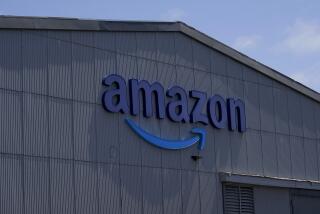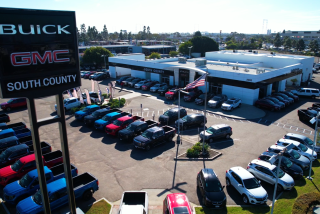Road to U.S. Was Opened by Hyundai
- Share via
FOUNTAIN VALLEY — Here at Hyundai Motor America’S. headquarters, they aren’t planning a rousing welcome for competitor Kia Motors North America.
But HMA President D. O. Chung says he is happy to see the second largest of Korea’s three major car makers come ashore.
“If they come into this market with a good product, then they enhance Korean products, and that is a benefit to us,” he said.
Hyundai set the car world on fire in 1986 when it broke an import-company record, selling 170,000 cars in its first year in the United States. It broke its own record in 1987 and again in 1988, when it hit a peak of 264,000 sales. In the past three years, however, the company has seen its sales drop steadily.
Hyundai, which many American consumers expected to provide the same high quality as Japanese car makers even though its maiden product, the Excel, sold for just $4,995, was hurt by early quality problems and by a short-lived resurgence of Japanese car makers in the entry-level market they had abandoned.
But Chung, who took over Hyundai’s top U. S. position earlier this year in what company officials called a routine rotation of executives, said that next year the company expects to post its first annual sales growth since 1988--125,000 sales, up from the 120,000 projected for this year.
The company’s aggressive quality-control program--and its unprecedented two-year, bumper-to-bumper warranty that even covers scheduled maintenance--has helped erase bad memories, industry analysts say.
Hyundai Motor America officials have also said they will unveil five new products, including a redesigned Excel and their new turbo-charged Scoupe sports coupe, between now and 1999. They hope the full line of passenger vehicles will move the company further into the mainstream market.
Chung said in a recent interview that the company is not planning a truck for the U. S. market but is considering a multipurpose van.
“We have talked to Chrysler about it,” Chung said. While those talks have not led to a deal, he is convinced that “we need to have relationships with other companies, like Chrysler and like our current relationship with Mitsubishi,” the Japanese giant that owns 15% of Hyundai’s Korean parent.
Such interlocking agreements, in which car makers collaborate on projects, “are the future,” Chung said.
Kia, founded in 1944 as a bicycle parts manufacturer and limited by the government during the 1970s to making trucks and buses, now controls about 36% of Korea’s car and truck market. Hyundai has 55% of the combined market.
Kia designs and engineers many of its own products, but it also has joint manufacturing pacts with both Ford and Mazda. Using a discontinued Mazda design, it produces the Ford Festiva for sale in the United States.
The new products it is bringing over next year are Kia designs, but both the engine and transmission were designed by Mazda.
A third Korean car maker, Daewoo, produces the Le Mans models imported by Pontiac for sale in the United States, but the General Motors unit reportedly is discontinuing that model after 1993. Pontiac spokespersons declined to comment.
More to Read
Inside the business of entertainment
The Wide Shot brings you news, analysis and insights on everything from streaming wars to production — and what it all means for the future.
You may occasionally receive promotional content from the Los Angeles Times.










